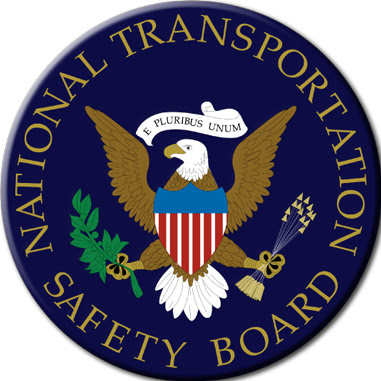 |
| Map of New York Judicial Departments |
NY's LAWS FROM 2012
PUNISHING OFFENDERS
WITH MULTIPLE DWI's
UPHELD IN 2015...
In case you did not know, the New York DMV has been cracking down hard on individuals charged with multiple instances of DWI. The possible punishments range from having to complete an OASAS certified alcohol or drug rehabilitation course to a LIFETIME revocation of driving privileges without leave to appeal...
Here is a summary of the 2012 rules: [ 15 NYCRR s. 136.5 ]
Penalties for multiple offenders
New regulations took effect on September 25, 2012 that affect drivers with multiple alcohol/drugged-driving related convictions or incidents. The highlights of how these changes affect persons applying for a driver license after their license is revoked are provided below.
- Applicants with three or four alcohol/drugged-driving related convictions or incidents within a 25 year period, without a serious driving offense and whose revocation does NOT result from an alcohol or drugged driving conviction or incident, will be denied relicensing for two years in addition to the statutory revocation period, and then will be relicensed with a problem driver restriction for two years. A serious driving offense is a fatal accident, a driving-related penal law conviction, conviction of two or more violations for which five or more points are assessed, or 20 or more points from any violations.
- Applicants with three or four alcohol/drugged-driving related convictions or incidents within the preceding 25 years, without a serious driving offense and whose revocation DOES result from an alcohol or drugged driving conviction or incident, will be denied relicensing for five years in addition to the statutory revocation period, and then will be relicensed with a problem driver restriction for 5 years with an ignition interlock.
- Applicants with three or four alcohol/drugged-driving related convictions or incidents within the preceding 25 years, with a serious driving offense will be permanently denied a driver license, unless there are compelling or extenuating circumstances.
- Applicants with five or more alcohol/drugged-driving related convictions or incidents on their lifetime driving record will be permanently denied a driver license, unless there are compelling or extenuating circumstances.
- Applicants with two or more alcohol/drugged-driving related convictions or incidents within the preceding 25 years will be required to serve their entire sanction period (suspension or revocation) even if they complete the Drinking Driver Program (DDP) and will be required to submit proof of rehabilitation.
After these rules came out, there was some questions by DWI defense attorneys as to whether the Courts would uphold these far-reaching rules/punishments as Constitutional under New York or Federal law.
As of 2015, we know that YES--the Courts will uphold them.
There were two cases last year that solidified the Commissioner of the Dept. of Motor Vehicles powers to enact and punish individuals who fit into the above-listed criteria...
Matter of Acevedo v. New York Dept. of Motor Vehicles
In August 2015, the Third Department Appellate Division (the 2nd highest Court in the land --and the court that geographically covers Ithaca, NY) came down with a decision of where 3 of 5 judges agreed with the powers of the Commissioner to create and enforce the rules listed above. In the case, Acevedo had a DWAI (alcohol conviction) in 2003, then DWI convictions in 2006 and 2008. So he had three non-serious alcohol-related convictions in a 25 year period which would result in a 5 year ban on his license plus 5 years of ignition interlock device after relicensing with a restricted license...
This was the first case challenging the new law set forth by the DMV. And it lost. Basically, the court found no wrongdoing on the part of the DMV and went even further to say that there was no constitutional problem with the enacted rules. And even worse for my clients, the court goes on to say "a driver's license is "a personal privilege subject to reasonable restrictions and revocation by [the Commissioner in] her discretionary powers," not a vested right." This means that there are fewer protections for a driver's license --and it can be taken from you easily in NY.
Matter of Carney v. New York Dept. of Motor Vehicles
In November 2015, a driver with 5 alcohol-related convictions who got an automatic LIFETIME driving ban challenged these laws. Once again, in a 3-2 decision, the Third Dept. Appellate Division, agreed with the DMV and stated that this lifetime ban "does not exceed the scope of the Commissioner's rule-making authority."
Twice in 2015, the Appellate Division backed up the DMV's authority to make and enforce these rules to protect the roads and the public from people who continue to drink and drive...
What does this mean if you get a DWI?
If you get ANY DWI --whether it is the violation DWAI, or a misdemeanor DWI ...if you get a second one in 25 years...you will be subject to the lesser of these rules (complete an alcohol course). If you get a third, you're looking at losing your license for at least 5 years plus 5 more years of Ignition Interlock device. Any more than that, and you could potentially lose it forever...
QUESTIONS? Give me a call: 607-229-5184
BY ATTORNEY MIKE CYR
www.ithacadwi.com
www.facebook.com/ithacadwi
www.twitter.com/ithacadwi
Educational Purposes Only. Copyright CYR & ASSOCIATES 2016.
*Attorney advertising*


